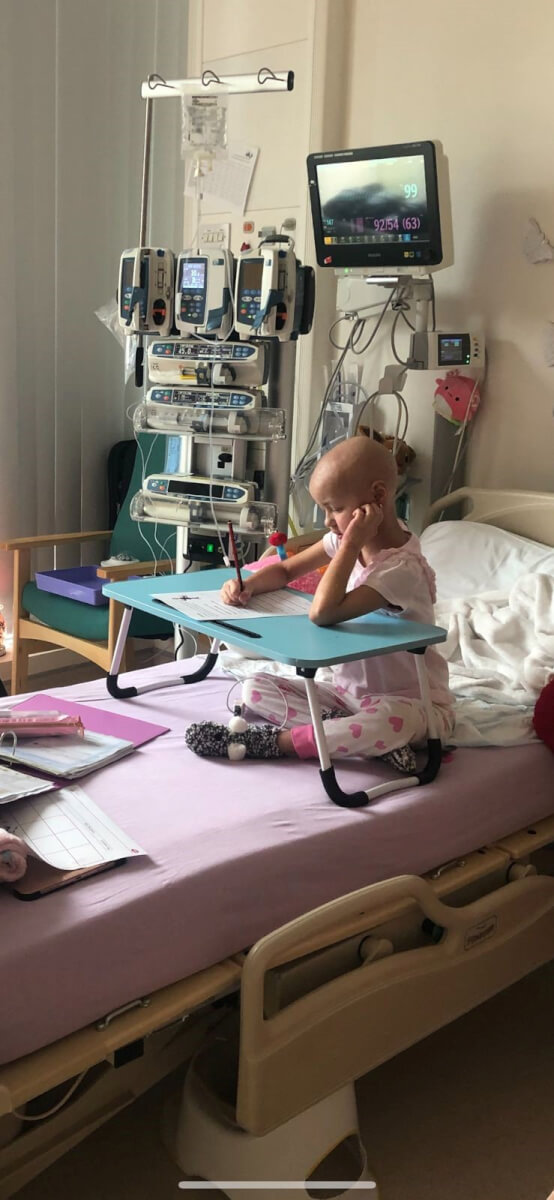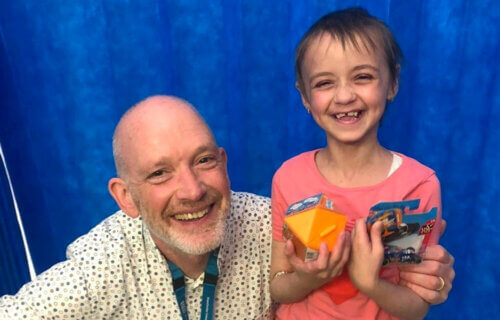MANCHESTER, United Kingdom — A cancer-stricken young girl with “no hope” of recovery has been saved after doctors gave her a stem cell transplant using blood from a newborn baby’s umbilical cord. Eight-year-old Sarah Marica received the experimental treatment when chemotherapy and a bone marrow transplant failed to cure her acute myeloid leukemia (AML). She was diagnosed with the rare blood cancer at the age of four.
“When I heard the doctor first diagnose Sarah with leukemia, I started crying at the word, but even worse, we were told this was a rare, harder-to-treat leukemia. She had to start chemotherapy immediately as her blood results were so bad, she could have died at any time,” her mother, Simona Marica, recalls in a university release.
Sarah, from Cornwall in the United Kingdom, underwent multiple treatments after her 2019 diagnosis. AML affects approximately 100 children and young adults annually in the U.K. Her initial recovery, especially following a bone marrow transplant from her brother David, showed promise. However, the cancer continuously returned, each time diminishing her chances of survival.
“She needed immediate chemotherapy due to her critical blood results. We thought we were returning to normalcy after six months of treatment in Bristol. But by February 2020, the leukemia had returned,” explains Marica, a staff nurse in Cornwall.
Sarah’s battle led her to the pioneering cord blood stem cell transplant at Royal Manchester Children’s Hospital (RMCH). Understanding the gravity of her daughter’s condition, Marica consented to this experimental treatment, knowing it might be Sarah’s only remaining option.
Despite the odds, Sarah’s resilience shone through.
“Sarah has been through so much over the last few years, but she has been so brave. She has been my rock and she is such a cheerful, determined girl who loves school and playing with her friends,” Marica adds. “As a result of this research, Sarah is now fully enjoying life. She is my inspiration, and this treatment has given us all our lives back.”

The team at RMCH discovered that children who had a cord blood transplant, after chemotherapy didn’t work, were nearly five times more likely to be free from both the disease and GVHD (graft versus host disease — common transplant complication) than those who had different types of stem cell transplants.
“Our research shows remarkable results. Cord blood, rich in stem cells, when combined with white blood cell transfusions, helps in rapid immune recovery and effectively combats such aggressive cancers,” says Professor Rob Wynn, Director of the Paediatric Bone Marrow Transplant Programme at RMCH and a key figure in Sarah’s treatment.
“Children in our study received seven white blood cell transfusions around their transplant. Sarah’s life was saved by this method. Our findings, published in Blood Advances, demonstrate that cord blood cells are crucial in treating hard-to-treat blood cancers. Sarah is one of five children in our trial who are now alive and in remission, a testament to this treatment’s effectiveness. Without this clinical trial, their survival would have been highly unlikely.”
The initial results of the study are published in the British Journal of Haematology.
South West News Service writer Douglas Whitbread contributed to this report.
